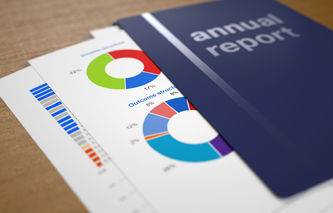Definition
The term Form 10-Q refers to a quarterly report that summarizes the business and financial performance of a company. Form 10-Q is a detailed document, which is produced three times each year and contains a number of unaudited financial statements publicly-traded companies are required to file with the Securities and Exchange Commission.
Explanation
Publicly-traded companies are required by federal securities laws to disclose certain operating and financial information on an ongoing basis. Form 10-Q is filed with the Securities and Exchange Commission (SEC) 40 days after the close of each quarter; except at the end of a company's fiscal year, which requires the filing of a Form 10-K.
Company websites will oftentimes contain both their current as well as historical Form 10-Q and Form 10-K documents; typically located in the "investors" section. The report itself includes a large volume of information; however, it is less detailed than the company's Form 10-K. The information appearing in a Form 10-K is also audited, while a 10-Q may contain unaudited accounting reports.
The following types of information can be found in a company's Form 10-Q.
Business Background: the history of the company, number of employees, operating geography, and business segments.
Select Financial Data: management's discussion and analysis of financial condition, and off balance sheet arrangements.
Financial Statements and Disclosures: income statement, balance sheet, statement of cash flows, discontinued operations, long-term investments, available-for-sale securities, financial risk, and management activities.
Other: controls and operating procedures, as well as exhibits to financial statements.
Related Terms










